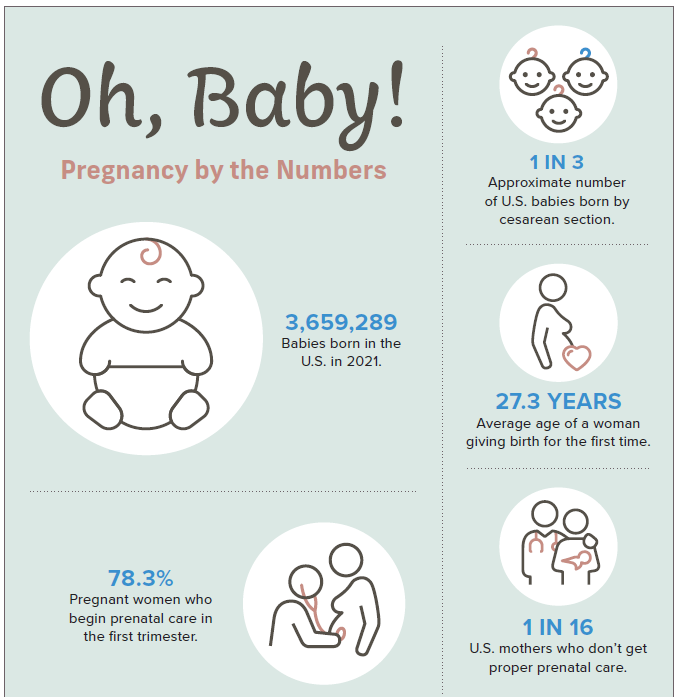
Baby Care In Pregnancy: A Comprehensive Guide
Pregnancy is a transformative journey that brings immense joy and anticipation. While preparing for the arrival of your little one, it’s crucial to prioritize their well-being and ensure a healthy pregnancy. Baby care during pregnancy involves a range of essential practices that lay the foundation for your child’s optimal development. This comprehensive guide will delve into the key aspects of baby care in pregnancy, empowering you with the knowledge and strategies to nurture your unborn child.
Prenatal Nutrition: Fueling Growth and Development
A balanced and nutritious diet is paramount for both the mother and the developing baby. The nutrients consumed during pregnancy play a vital role in supporting fetal growth, organ development, and overall well-being.
- Essential Nutrients: Focus on consuming foods rich in folic acid, iron, calcium, protein, and omega-3 fatty acids. These nutrients are crucial for preventing birth defects, promoting brain development, and ensuring healthy bone and muscle growth.
- Hydration: Staying hydrated is essential for maintaining amniotic fluid levels and supporting the baby’s circulatory system. Aim for eight glasses of water per day.
- Avoid Harmful Substances: Limit or avoid caffeine, alcohol, and smoking during pregnancy. These substances can cross the placenta and negatively impact fetal development.
Prenatal Exercise: Staying Active and Healthy
Regular exercise during pregnancy offers numerous benefits for both the mother and the baby. It helps maintain a healthy weight, improves circulation, and reduces the risk of gestational diabetes and preeclampsia.
- Recommended Activities: Engage in low-impact exercises such as walking, swimming, or prenatal yoga. Consult with your healthcare provider before starting any new exercise program.
- Intensity and Duration: Aim for moderate-intensity exercise for 30 minutes most days of the week. Listen to your body and rest when needed.
- Safety Precautions: Avoid exercises that involve lying on your back, jumping, or excessive twisting.
Prenatal Care: Monitoring Your Health and Baby’s Progress
Regular prenatal appointments are crucial for monitoring your health and the baby’s development. These appointments involve physical exams, blood tests, and ultrasounds to assess fetal growth, detect potential complications, and provide necessary interventions.
- Schedule: Attend prenatal appointments as recommended by your healthcare provider, typically every four weeks in the first trimester, every two weeks in the second trimester, and weekly in the third trimester.
- Purpose: Prenatal care helps identify and manage risk factors, prevent complications, and ensure the well-being of both the mother and the baby.
- Communication: Openly discuss any concerns or questions with your healthcare provider. They are there to support and guide you throughout your pregnancy.
Fetal Movement: Connecting with Your Baby
As your pregnancy progresses, you will begin to feel your baby’s movements. These movements are a sign of fetal well-being and provide a special connection between you and your child.
- Timing: Fetal movements typically become noticeable around 18-20 weeks of pregnancy.
- Frequency: The frequency and intensity of fetal movements vary from pregnancy to pregnancy. However, any significant changes in movement patterns should be reported to your healthcare provider.
- Bonding: Engage in activities that encourage fetal movement, such as talking, singing, or gently rubbing your belly.
Sleep and Rest: Nurturing Your Body and Mind
Getting enough sleep and rest is essential for both the mother and the baby. Sleep deprivation can lead to fatigue, irritability, and impaired immune function.
- Recommended Hours: Aim for 7-9 hours of quality sleep each night.
- Sleeping Position: As your pregnancy progresses, sleeping on your left side is recommended to improve circulation and reduce pressure on the vena cava.
- Restful Activities: Engage in relaxing activities before bed, such as taking a warm bath, reading, or listening to calming music.
Emotional Well-being: Managing Stress and Anxiety
Pregnancy can be an emotionally challenging time. Managing stress and anxiety is crucial for the well-being of both the mother and the baby.
- Stress Reduction Techniques: Practice relaxation techniques such as deep breathing, meditation, or yoga.
- Support System: Surround yourself with a supportive network of family, friends, or a therapist.
- Professional Help: If stress or anxiety becomes overwhelming, do not hesitate to seek professional help.
Preparing for Labor and Delivery: Knowledge and Confidence
As your pregnancy nears its end, it’s important to prepare for labor and delivery. Education and knowledge can empower you and reduce anxiety.
- Prenatal Classes: Attend prenatal classes to learn about the stages of labor, pain management techniques, and newborn care.
- Birth Plan: Create a birth plan that outlines your preferences for labor and delivery, including pain management, birthing position, and postpartum care.
- Hospital Tour: Visit the hospital where you plan to deliver to familiarize yourself with the facilities and staff.
Conclusion
Baby care in pregnancy is a multifaceted endeavor that encompasses nutrition, exercise, prenatal care, fetal movement, sleep, emotional well-being, and preparation for labor and delivery. By embracing these essential practices, you can nurture your unborn child, promote their optimal development, and create a strong foundation for their future health and happiness. Remember to consult with your healthcare provider throughout your pregnancy for personalized guidance and support. The journey of pregnancy is a precious one, and by prioritizing baby care, you can ensure a healthy and fulfilling experience for both you and your little one.
